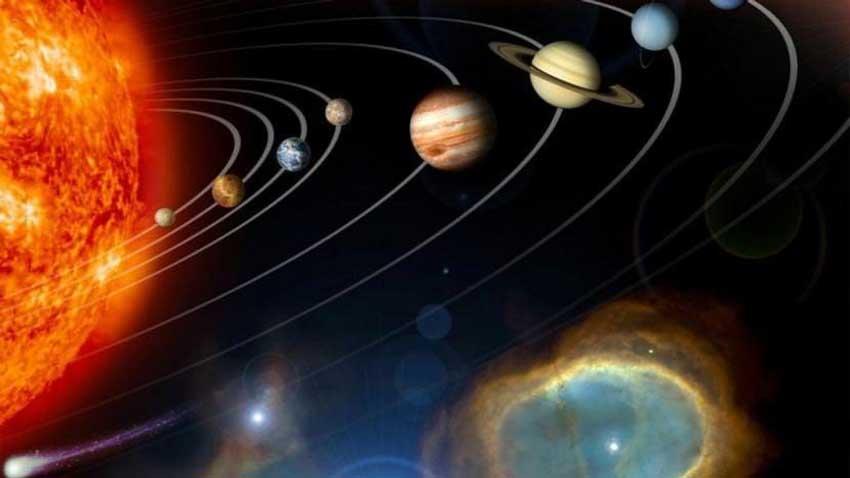Reply To:
Name - Reply Comment

 Predictive Astrology, the entire edifice of Astrology for that matter, is based on the positions of planets in the heavens at a given time and the effects they produce on man and all other terrestrial phenomena through their rays and vibrations.
Predictive Astrology, the entire edifice of Astrology for that matter, is based on the positions of planets in the heavens at a given time and the effects they produce on man and all other terrestrial phenomena through their rays and vibrations.
What is meant by conjunction or samyoga?
Ancient Indian Rishis had recognized only seven planetary orbs apart from the shadowy planets or nodes Rahu and Ketu. The seven orbs are Sun, Moon, Mars, Mercury, Jupiter, Venus and Saturn. Of course, we all know that Sun and Moon are not planets in an astronomical sense. But for astrological purposes these two are also treated as planets. All planets move around an imaginary circle called Zodiac or Bhachakra which is divided into 12 parts of 30 degrees each which are called Rashis or Signs. For purposes of measurement, the beginning of the Zodiac is reckoned from the first degree of Aries or Mesha. When two or more planets are located in the same sign longitudinally, in astrological parlance they are supposed to be in conjunction.
Each Rashi or Sign has its own qualities and virtues peculiar to it, according to ancient Indian Maha Rishis. A thorough grasp of the qualities peculiar to each sign is an imperative for determining the results planets produce in different signs singly or in combinations.
When a planet is placed in a sign alone its power in producing results is more pronounced than when he is in conjunction with another planet in the same sign. When there are two planets in the same sign their individual qualities disappear and the effects they produce together take a different complexion which has to be determined.
How and when effects of conjunctions vary
Even if there are two planets in the same sign, they can be as far apart as 28 or 29 degrees. Such a conjunction of two planets would not produce the real results which two planets are expected to give when they are together in one and the same sign. On the other hand, there can be two planets close to each other in two adjacent signs. In such a case these two planets are capable of producing the results expected of them in full measure, as if they are together in the same sign.
How planets react in conjunctions
Results of planetary conjunctions can be either favourable or unfavourable or a mix of the both. The results get modified according to the nature of the sign and the House or the Bhava they are placed in.
The Sun and Jupiter would not lose their inherent power when another planet conjoin them. Moon and Mercury would lose their inherent good qualities when a malefic planet conjoin them. Jupiter- Saturn conjunction is considered very favourable, because when Saturn is conjunct with Jupiter, his inherent evil qualities would disappear and his good qualities become prominent and pronounced.
However, Jupiter becomes weak when he comes under the combined power of two evil planets like Mars and Saturn. When Saturn conjoins Moon, the latter would lose all her good qualities and the evil effects of Saturn like disease, loss of wealth and property would visit on the native.